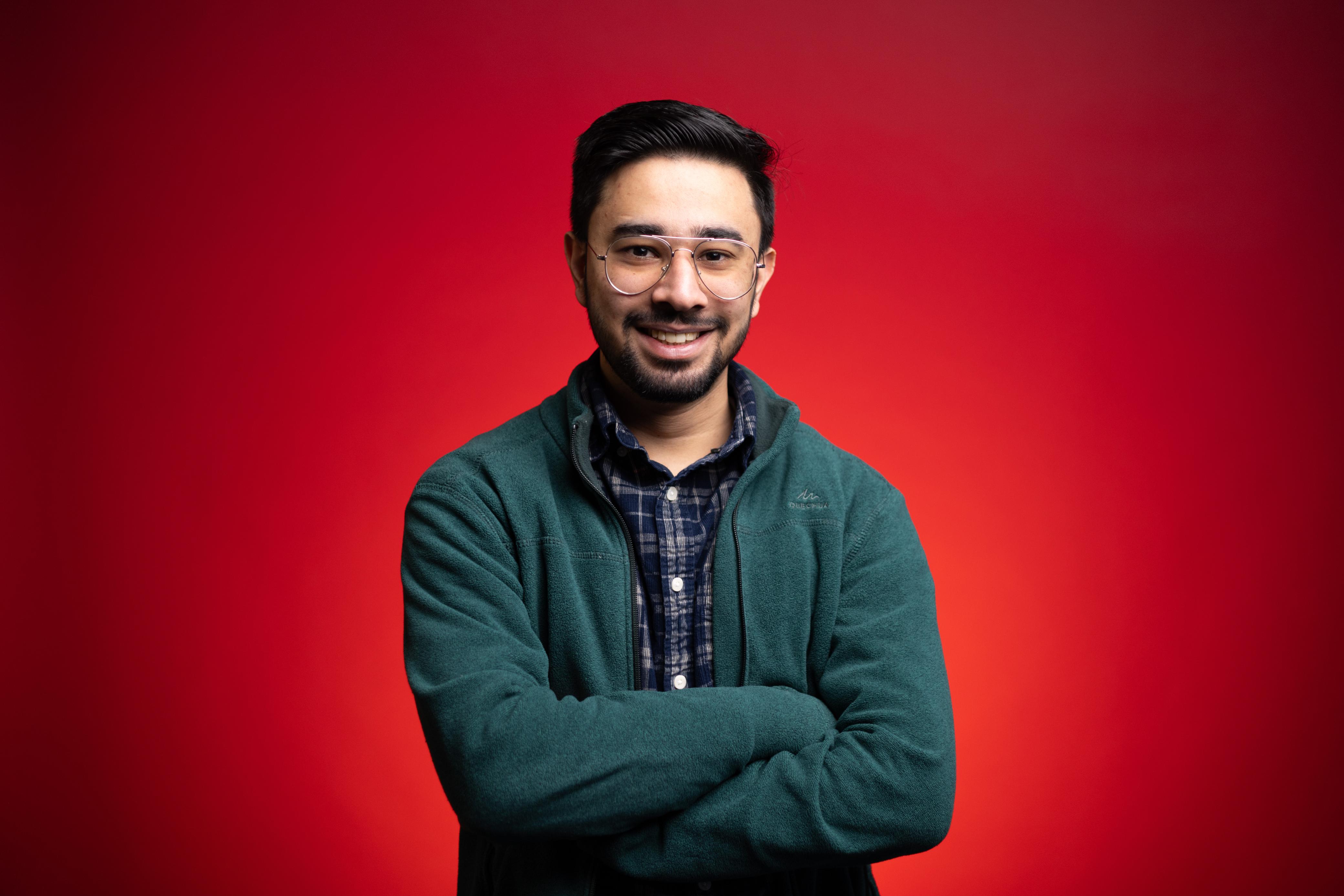MSc ACS Students Forge a New Path for Caregivers
Mon. Sep. 1, 2025
North Forge is a not-for-profit tech incubator, accelerator, and fabrication lab. Its Founders Program works with startups across many stages of research and product development. Two MSc Applied Computer Science and Society students, Manjot Sran (pictured below) and Sujay Rittikar, were recently accepted to the program. Their startup, Memorique AI, aims to use technology to support mental health — beginning with caregivers for Individuals with Dementia.
We checked in with Manjot and Sujay to learn a bit more.
 First off, can you tell us a bit about yourselves, your program, and your research?
First off, can you tell us a bit about yourselves, your program, and your research?
We’re part of Dr. Sheela Ramanna’s Multimodal Information Processing group. Using machine-learning techniques, we train different models to make sense of many kinds of data, so that they can detect emotions, flag fake or hateful content, understand sentiments, and interpret multiple languages. Our work contributes to creating reliable research to improve tools that analyse and sort social media's endless flow of memes, posts, and news, making the internet clearer and safer for everyone.
I (Manjot) develop cutting-edge machine-learning methods. These methods combine images, text, audio, and video in optimal ways to train AI to accurately recognize a wide range of human emotions.
Meanwhile, Sujay designs innovative algorithms and model architectures that integrate classical Machine Learning and modern large language models, so AI can learn and manage multiple languages more effectively across multiple applications.
Can you tell us about Memorique AI? What got you started on that project?
At Memorique AI, we are a group of individuals dedicated to developing technology that enhances mental health management. Currently, we're working on building solutions to support caregivers of Individuals with Dementia, providing them with access to personalized knowledge, connecting them with peers, helping them find the right healthcare providers, and understanding how we can assist them during the diagnosis process. We recognize that caregiving is a very challenging work, emotionally connected, and very responsible. Our current goal is to create an online platform that will welcome the caregivers and support them in their day- to-day challenges.
What first sparked this project was our ongoing work on an Alzheimer’s diagnosis study with Dr. Qian Liu and Dr. Sheela Ramanna. Dr. Liu’s bioinformatics expertise and graduate course on Digital Image Processing helped us grasp the complexity of Alzheimer’s and showed us how AI could sharpen diagnostic tools.
Because Alzheimer’s is the most common form of dementia, its impact felt impossible to ignore. We began talking about what people living with dementia and the caregivers who stand beside them need day to day. We’ve always shared a goal of building technology that genuinely helps society, and those conversations grew into Memorique AI.
Congrats on being accepted to North Forge’s Founders program! What was the application process like?
Thank you! The application was straightforward yet thorough, covering the key questions every founder should be able to answer. We applied through the North Forge website and were invited to an interview, where we discussed our motivation, current progress, and long-term vision. Sujay’s experience building software for early-stage startups proved invaluable as he knows the nuts and bolts of launching and scaling products, and being interested in the startup scene of every city he lives in, he's the one who found North Forge as the right place for us.
When did you start at North Forge? What do the next weeks/months look like for you?
We started in June this year (2025). Over the next few weeks and months, we’ll validate our approach and then move into designing and building our solution. We’re on track to finish our first founders’ course, the Pathfinder Program, by September.
How is your MSc work connected to Memorique AI? Have you discussed Memorique with the faculty? What have they said?
Our MSc research feeds directly into Memorique AI. The emotion-recognition systems and language- model architectures we research will be the platform’s core technologies, giving it the human touch caregivers need. We’ve discussed the project with our faculty, who are pleased we’re applying our skills to a social challenge, but they’ve also urged us to integrate AI cautiously because of the problem’s sensitivity.
What’s been the highlight of your time in grad school so far?
Our program’s standout feature is its nonstop learning curve. Not a day goes by without fresh ideas - whether we’re in the lab, on campus, or taking a 15-kilometre walk through downtown and the Forks. We’re constantly asking how to sharpen our research and turn those insights into real-world impact.
Where would you like your research and work with Memorique to go over the course of the next 12 months?
Over the coming year, we’ll dive deeper into qualitative research for our respective projects, get busy, and lay a solid foundation for compelling master’s theses. In parallel, we’ll keep developing Memorique, gathering feedback from caregivers to refine every detail. Our goal is simple: produce research that advances the field and a platform that genuinely helps families.
The new academic year is just starting! Any tips or advice for incoming graduate students?
Graduate school is the ultimate playground for exploration. Whether you’re drafting submissions or diving into stacks of research, every effort shapes who you become. Don’t chase perfection, aim for capability. Deadlines will crowd your calendar, but the university’s support is always there. Look after your health, enjoy the ride, and never underestimate the power of a good cup of coffee.
